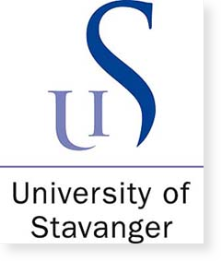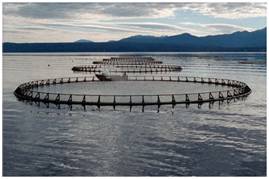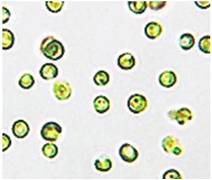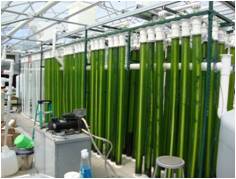 |
Peroxisome Biology of Plants and MicroalgaeResearch group by Prof. Dr. S. ReumannCentre for Organelle Research (CORE) University of Stavanger, Norway University of Hamburg (Germany) |
 |

|
|
Reumann lab > News > Vacant positions |
Vacant positions |
|
 Fish farm in Norway |
Research
Fellow (PhD position) in
Molecular Cell
Biology of Microalgae
The University of Stavanger (Norway) invites applications for a doctorate scholarship in Biological Chemistry at the Faculty of Science and Technology in the Department of Mathematics and Natural Science, at the Centre for Organelle Research (CORE). This is a trainee position that will mainly give promising researchers an opportunity for professional development leading to a doctoral degree. The research fellow will be appointed for three years (with a possibility of extension to four years with 25% compulsory duties). The position is vacant from October 1, 2013. The appointee can accede when he/she is admitted to the PhD program in Biological Chemistry with an agreement to complete the doctorate within the duration of the scholarship. The project “Improving the productivity of marine microalgae in synthesizing omega-3 fatty acids”: The biotechnology project aims at improving the productivity of selected “high-oil” microalgal species in synthesizing omega-3 fatty acids for Norwegian aquaculture such as farmed salmon industry. Marine microalgae species such as Nannochloropsis and Phaeodactylum will be central to the project. Research focus will be put on peroxisome metabolism, and applied and fundamental research be combined to maximize project success and publication productivity. Comprehensive knowledge and experimental experience in microalgal and/or plant molecular cell biology are required. The research project is multidisciplinary combining molecular biology, biochemistry, proteomics, applied bioinformatics, biotechnology, and genetics. The project requires interactive skills in collaborating with national and international academic research groups and with industrial partners involved in the project, i.e. the PBR design and microalgal production company MicroA and the fish feed producer EWOS Innovation. The Research Centre The Centre for Organelle Research (CORE) houses state-of-the-art equipment in microscopy, proteomics, and electrophysiology. The research centre represents a highly active and stimulating environment and encourages collaborative and cross-disciplinary research. The project is technically and intellectually demanding and requires experience in the above-mentioned disciplines. Students with such a background are prime candidates for the position. The position is funded by The Research Council of Norway (RCN). Qualification Applicants must have a strong academic background with a five-year master degree within Biological Sciences (Biology, Biotechnology, Biochemistry, Molecular Biology etc.) preferably recently, or possess corresponding qualifications which could provide a basis for successfully completing a doctorate. Both the grade for the master’s thesis and the weight average grade of the master’s degree must individually be equivalent to or better than a B grade. By rating it will be placed on the applicant’s potential for research in the field, as well as that person’s individual prerequisites for research education. The appointee must be able to work independently and as a member of a team, be creative and innovative. The research fellow must have a good command of both oral and written English. This fellowship position is important for obtaining a scientific position at a University. The doctorate will mainly be carried out at the University of Stavanger, apart from a period of study abroad at a recognized and relevant centre of research. The research fellow is salaried according to the State Salary Code, l.pl 17.515, code 1017, LR 20, ltr 50, of NOK 421 100 per annum. The position provides for automatic membership in the Norwegian Public Service Pension Fund, which guarantees favourable retirement benefits. Members may also apply for home investment loans at favourable interest rates. Project description and further information about the position can be obtained from Prof. Sigrun Reumann, telephone +47 51 83 18 97, email sigrun.reumann@uis.no. See also http://core. uis.no/. Further information about the appointment procedures can be obtained from Higher Executive Officer Hallgeir Hognestad, telephone +47 51 83 17 36, email hallgeir.k.hognestad@uis.no The University is committed to a policy of equal opportunity in its employment practices. The University currently employs few female (ev male) research fellows within this academic field and women (ev men) are therefore particularly encouraged to apply. Application containing three copies of CV, the “Employment Application Form” (Information to be made available to the applicants), certificates/diplomas, references, list of publications and other documentation that the applicant considers relevant should be addressed to: University of Stavanger Faculty of Science and Technology 4036 Stavanger The application should be marked vacancy ref 30051032. Please note that application and submitted documents will not be returned. Closing date for applications is August 4, 2013. |
  |
Two
Marie
Curie Fellowships (2 Ph.D. positions) in the Initial Training Network
“Peroxisomes: key to cell performance and health”
ESR7-NO: “The role of peroxisomes in plant adaptation to abiotic stress” ESR8-NO: “Pathogen-inducible peroxisomal proteins mediating disease resistance”, both at the University of Stavanger (Norway), Prof. Dr. S. Reumann The Marie Curie Initial Training Network PERFUME (PERoxisome Formation, Function, Metabolism) is opening 12 Marie Curie fellowship positions for Early Stage Researchers. PERFUME is funded by the European Union Seventh Framework Programme under Grant Agreement No. 316723. Description The PERFUME program is an interdisciplinary and intersectoral initial stage training network (ITN) at the interface of medicine, plant and fungal biology, devoted to understanding the principles of peroxisome biology. Peroxisomes are ubiquitous organelles that are essential in man. Yet, the importance of the organelles is strongly underestimated. This is evident from the recent identification of several novel crucial functions, i.e. related to cope with various stress conditions. Due to earlier considerable technical challenges the atlas of peroxisome functions is still far from complete. Further understanding of the significance of the intact organelle for cell performance demands directed analyses, which require the combined expertise from different disciplines and sectors that cut across historically separated fields. The data generated in PERFUME will result in novel leads for the development of new therapeutic compounds and biomarkers for the diagnosis of peroxisome related diseases, but may also result in innovations in agriculture and biotechnology. PERFUME brings together a team comprising of top scientists from the fields of cell biology, biochemistry, genomics, proteomics, metabolomics, mathematical modeling, bioinformatics and protein structure analysis. The Network consists of 11 full partners, representing 4 EU member states and Norway, and includes 3 commercial enterprises. Multiple complementary training schemes will include specific research projects (including various academic and industrial secondments), a wide range of dedicated courses organized by the academic partners of the Network, and finally, training organized by the industrial partners of the Network. Trainees will become experts in the multidisciplinary field of peroxisome biology, and are expected to constitute future leaders in this field. 12 Early Stage Researchers The positions for Early Stage Researchers are available for candidates with a research experience ≤ 4 years (counted from the diploma that gives the rights to embark in a doctoral degree). Candidates must not have resided or carried out their main activity (work, studies, etc) in the country of their host organisation (i.e., Norway) for more than 12 months in the 3 years immediately prior to recruitment (short stays, such as holidays, are not taken into account). Requirements: Master degree (or very close to completion) in Life Sciences. Candidates should have i) exceptional academic performance, including qualifications, prizes, ii) subject specific skills and expertise (see descriptions of the positions), iii), communication, presentation skills and team working abilities and iv) competence in written and spoken English. Length of appointment: 3 years Type of Contract: temporary Starting date: between July 2013 and October 2013 Application: candidates are expected to submit a cover letter, a CV, as well a statement of research interests and skills, scanned copies of degree certificates, and the names and email addresses of two confidential references as a single PDF file. Applications from female candidates are particularly encouraged. Applicants are entitled to choose their preferred research team, with the option of indicating a secondary team preference. Application deadline: 23/05/2013 Descriptions of two individual PhD projects: ESR7-NO: “The role of peroxisomes in plant adaptation to abiotic stress” A PhD position is available at the Centre for Organelle Research (CORE) of the University of Stavanger, Norway. This PhD study aims to reveal yet unknown mechanisms that allow plants to adapt to adverse environ¬mental conditions. Candidate proteins will be identified by peroxisome proteomics of stressed A. thaliana plants and novel peroxisomal targeting signal (PTS) prediction tools. The function of promising candidate proteins will be studied by extensive phenotyping of constructed plant gain- and loss-of-function mutants, focussing on alterations in stress susceptibility and resistance, peroxisome proliferation and secondary metabolism (metabolomics in collaboration with MDiscoveries, Potsdam). Functional conservation of newly identified plant peroxisomal proteins in fungi will be studied, for instance by complementation analysis, during a secondment at the University of Groningen. Part of the research will be performed at the University of Groningen and MDiscoveries (Potsdam). Location: Stavanger, Norway Supervisor: Prof. Dr. Sigrun Reumann (sigrun.reumann@uis.no) Co-Supervisor: Prof. Dr. Ida J. van der Klei, University of Groningen Required subject specific skills and expertise: a master's degree in molecular life sciences (molecular cell biology, molecular genetics, biochemistry). Experience in Arabidopsis research is advantageous but not mandatory. ESR8-NO: “Pathogen-inducible peroxisomal proteins mediating disease resistance” A PhD position is available at the Centre for Organelle Research (CORE) of the University of Stavanger, Norway. The student will identify and functionally characterize pathogen-inducible plant peroxisomal proteins by proteomics of peroxisomes isolated from A. thaliana plants treated with defence hormones and elicitors or infected with pathogens. Candidate proteins will be further analysed for their role in peroxisome biology and pathogen defence. At the University of Exeter, the student will analyse putative human orthologs of novel plant and yeast peroxisomal proteins, which are predicted to play a role in stress adaptation, by extensive phenotyping of gene knock-down/ overexpression in mammalian cells, including a.o. metabolome analysis (MDiscoveries; Potsdam). Part of the research will be performed at the University of Exeter and MDiscoveries (Potsdam). Location: Stavanger, Norway Supervisor: Prof. Dr. Sigrun Reumann (sigrun.reumann@uis.no) Co-Supervisor: Prof. Dr. Michael Schrader, University of Exeter (UK) Required subject specific skills and expertise: a master's degree in molecular life sciences (molecular cell biology, molecular genetics, biochemistry). Experience in Arabidopsis research is advantageous but not mandatory. |
|
|


